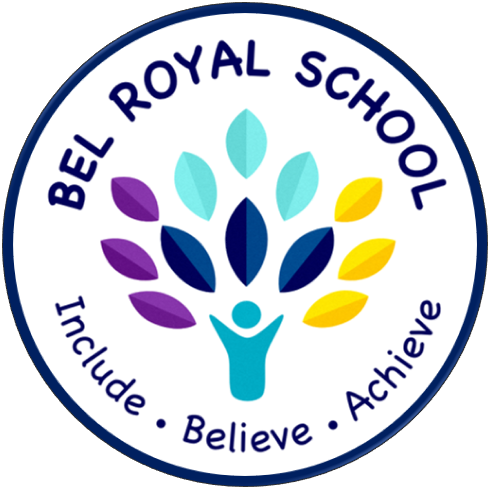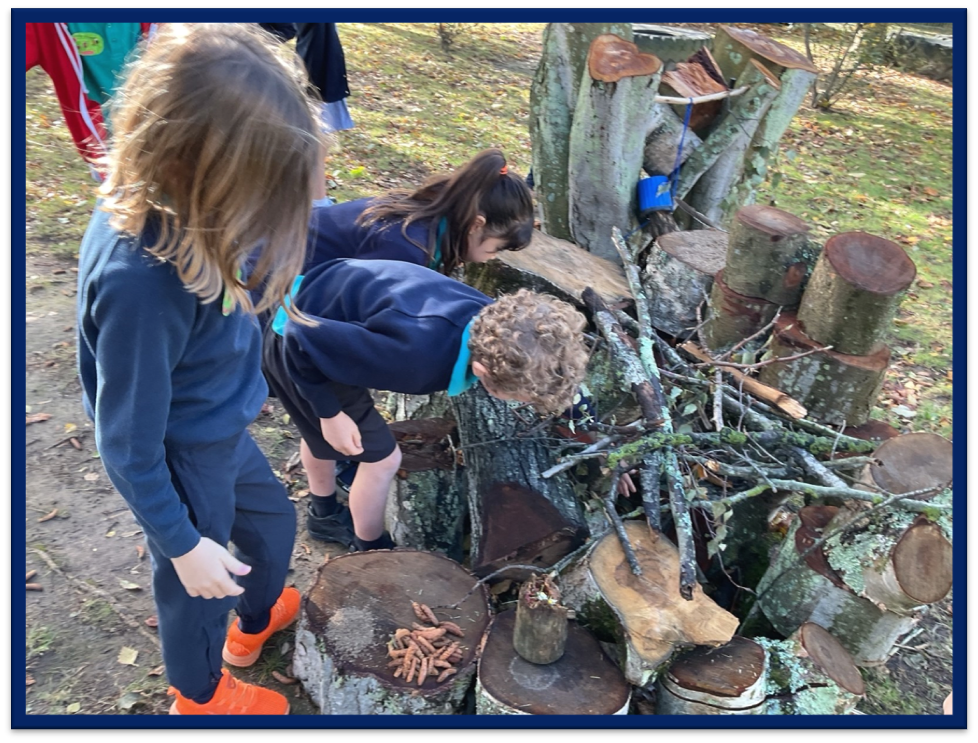
Bel Royal Primary School
Science
You cannot teach a man anything; you can only help him discover it in himself
Galileo (1564-1642)
Intent
Children are naturally curious, and it is our aim to provide a science curriculum that nurtures this curiosity and allows our pupils to ask questions and develop the skills they need to answer those questions.
Science lessons help pupils to:
-
Investigate problems.
-
Learn how science works.
-
Discover why science matters in the world.
At Bel Royal we strive to create a culture that provides strong foundations for understanding the world for all children. We want our pupils to be inquisitive and provide opportunities for them to explore and examine the world around them; to ask and answer questions so that they develop and deepen their knowledge and understanding.
Science is a body of knowledge built up through experimental testing of ideas.
We teach a spiral curriculum for Science at Bel Royal School, building on previously learnt concepts and revisiting when necessary to consolidate learning.
Science is also about methodology, a practical way of finding reliable answers to questions we may ask about the world around us. At Bel Royal we encourage children to be inquisitive; to ask questions and act upon their curiosity. Science in our school is about giving children time to think and develop their ideas and ways of working. We believe that a broad and balanced science education is the entitlement of all children, regardless of ethnic origin, gender, class, aptitude, or ability.
Implementation
Staff draw on high quality resources from the Association of Science Education to plan engaging science learning within their classrooms and reinforce an expectation that all pupils can achieve high standards in science. Science is taught using pedagogy and strategies that foster investigation and enquiry.
As opportunities arise, teachers take advantage of various workshops, trips and interactions with experts and local charities. Through this, children have the understanding that science has changed our lives and that it is vital to the world’s future prosperity. Children learn the possibilities for careers in science and recognise the skills they are developing that will help them in this field.
Real-Life Opportunities to Develop and Embed Concepts
At Bel Royal Primary School, we believe that the best learning experiences are rooted in the real world. By offering authentic, natural, and engaging experiences, we aim to nurture each child's sense of wonder and curiosity, bringing learning to life in ways that resonate deeply. Our teaching approach emphasises real-life applications of knowledge, allowing students to see the relevance of what they learn and to build a solid foundation for future exploration.
We know that children learn best when they can connect concepts to real-life situations. That’s why we offer hands-on, experiential learning opportunities both inside and outside the classroom. By embedding learning in real-world contexts, we help pupils grasp complex ideas and see the practical applications of science. These experiences are designed to be memorable and meaningful, leaving a lasting impact and helping children retain and deepen their understanding of core concepts.
Forest School Approach
Forest School is an educational philosophy that emphasises outdoor learning in natural environments. At Bel Royal we encourage children to engage with nature regularly, promoting experiential learning, problem-solving, and resilience.
-
Outdoor Learning: Sessions are held in our natural settings. The outdoor environment serves as the classroom, offering real-world learning opportunities.
-
Child-Led Exploration: Children are given autonomy to explore, discover, and interact with the natural world at their own pace. The focus is on experiential, hands-on learning.
-
Risk Management: Children are encouraged to take measured risks (e.g., climbing trees, using tools) under adult supervision. This helps build confidence, independence, and practical problem-solving skills.
-
Connection to Nature: Forest School aims to foster a deep, lifelong connection to the environment, teaching children about sustainability and the importance of protecting natural ecosystems.
-
Outdoor Classrooms: Set up dedicated times each week or during playtimes for children to learn outside. Activities could include building dens, bug hunting, or exploring seasonal changes.
-
Bushcraft Skills: Teach basic survival and bushcraft skills, such as fire-making, identifying plants, or safely using tools like whittling knives.
-
Ecological Projects: Engage students in conservation projects, such as planting trees, building birdhouses, or creating wildlife habitats.
Impact
The Jersey Curriculum for Science aims to ensure that all pupils:
-
Develop scientific knowledge and conceptual understanding through the specific disciplines of Biology, Chemistry and Physics.
-
Develop an understanding of the nature, processes and methods of science through different types of science enquiries that help them to answer scientific questions about the world around them.
-
Are equipped with the scientific knowledge required to understand the uses and implications of science, today and for the future.
By the end of EYFS and each key stage, pupils are expected to know, apply and understand the matters, skills and processes specified in the relevant programme of study. Teachers will assess children on the knowledge and skills of each area, including working scientifically.
Pupils will be taught to use the following practical scientific methods, processes and skills through the teaching of the programme of study content. Working scientifically will always be taught through and clearly related to substantive science content in the programme of study.
Key Stage 1
-
Asking simple questions and recognising that they can be answered in different ways
-
Observing closely, using simple equipment
-
Performing simple tests identifying and classifying
-
Using their observations and ideas to suggest answers to questions
-
Gathering and recording data to help with answering questions.
Years 3 and 4
-
Asking relevant questions and using different types of scientific enquiries to answer them
-
Setting up simple practical enquiries, comparative and fair tests
-
Making systematic and careful observations and, where appropriate, taking accurate measurements using standard units, using a range of equipment, including thermometers and data loggers
-
Gathering, recording, classifying and presenting data in a variety of ways to help in answering questions
-
Recording findings using simple scientific language, drawings, labelled diagrams, keys, bar charts, and tables reporting on findings from enquiries, including oral and written explanations, displays or presentations of results and conclusions
-
Using results to draw simple conclusions, make predictions for new values, suggest improvements and raise further questions
-
Identifying differences, similarities or changes related to simple scientific ideas and processes
-
Using straightforward scientific evidence to answer questions or to support their findings.
Years 5 and 6
-
Planning different types of scientific enquiries to answer questions, including recognising and controlling variables where necessary
-
Taking measurements, using a range of scientific equipment, with increasing accuracy and precision, taking repeated readings when appropriate
-
Recording data and results of increasing complexity using scientific diagrams and labels, classification keys, tables, scatter graphs, bar and line graphs
-
Using test results to make predictions to set up further comparative and fair tests
-
Reporting and presenting findings from enquiries, including conclusions, causal relationships and explanations of and degree of trust in results, in oral and written forms such as displays and other presentations
-
Identifying scientific evidence that has been used to support or refute ideas or arguments
